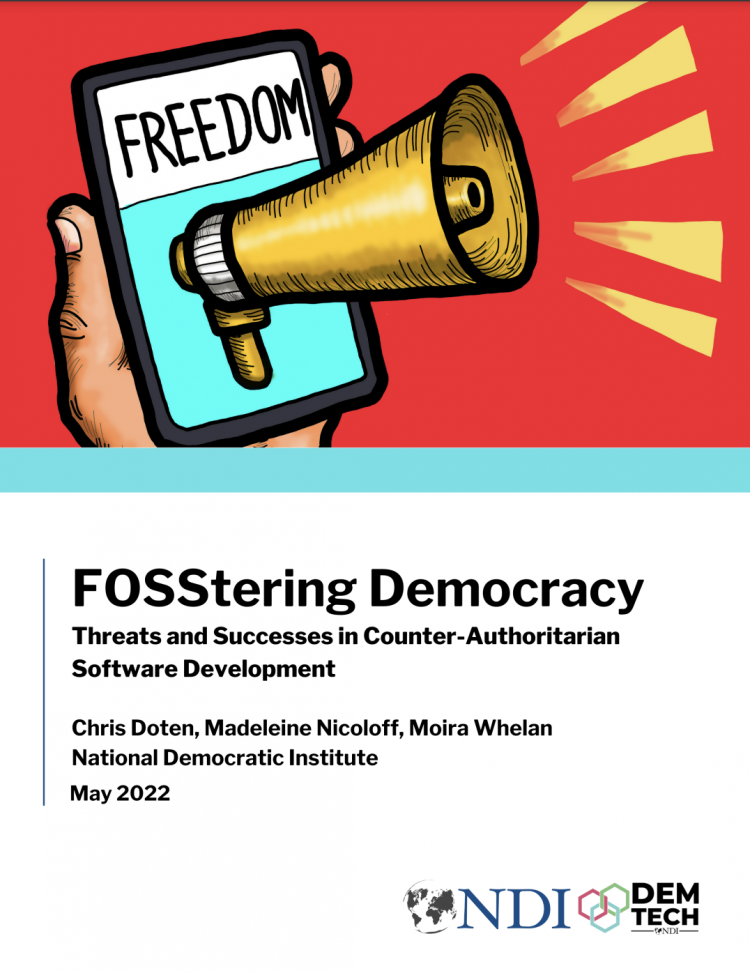FOSStering Democracy: Threats and Successes in Counter-Authoritarian Software Development
The future of open societies in the digital age depends on the ability of those who believe in democracy and human rights to effectively and safely make use of the internet. Despite significant investments made by the US government and other donors, as well as the efforts of global democracy implementers to develop Internet Freedom and cybersecurity tools to keep at-risk groups connected and secure, the rapid evolution and proliferation of aggressive tactics from digital authoritarians have made democracy and rights organizations less safe than ever online. Two visions for the future of the internet currently stand in opposition: one of a single, decentralized network, exemplified by the recently announced Declaration for the Future of the Internet; and the other consisting of multiple sovereign networks, such as the “digital iron curtain,” that dropped following Russia’s catastrophic invasion of Ukraine. This is a critical moment of opportunity: democracy today can only thrive with a robust digital public sphere. Free and open-source (FOSS) public interest technology is essential to supporting democracy, and there is more that we can be doing to create sustainable Internet Freedom technology infrastructure that meets people’s needs around the world.
The white paper draws on NDI’s programmatic expertise, as well as research and interviews with key leaders in the Internet Freedom space. It elaborates on the crisis faced in keeping democracy advocates safe online, outlines the challenges of the internet freedom technology “life cycle,” and identifies lessons learned about coordination, long-term financial sustainability, and technical support to inform the democracy community. The paper concludes with a road map towards building a sustainable public interest internet freedom technology infrastructure, including recommendations for governments, donors, implementers and technologists.
